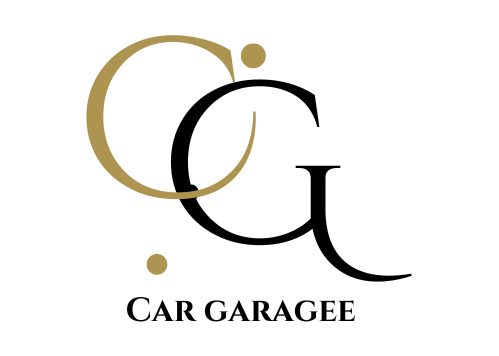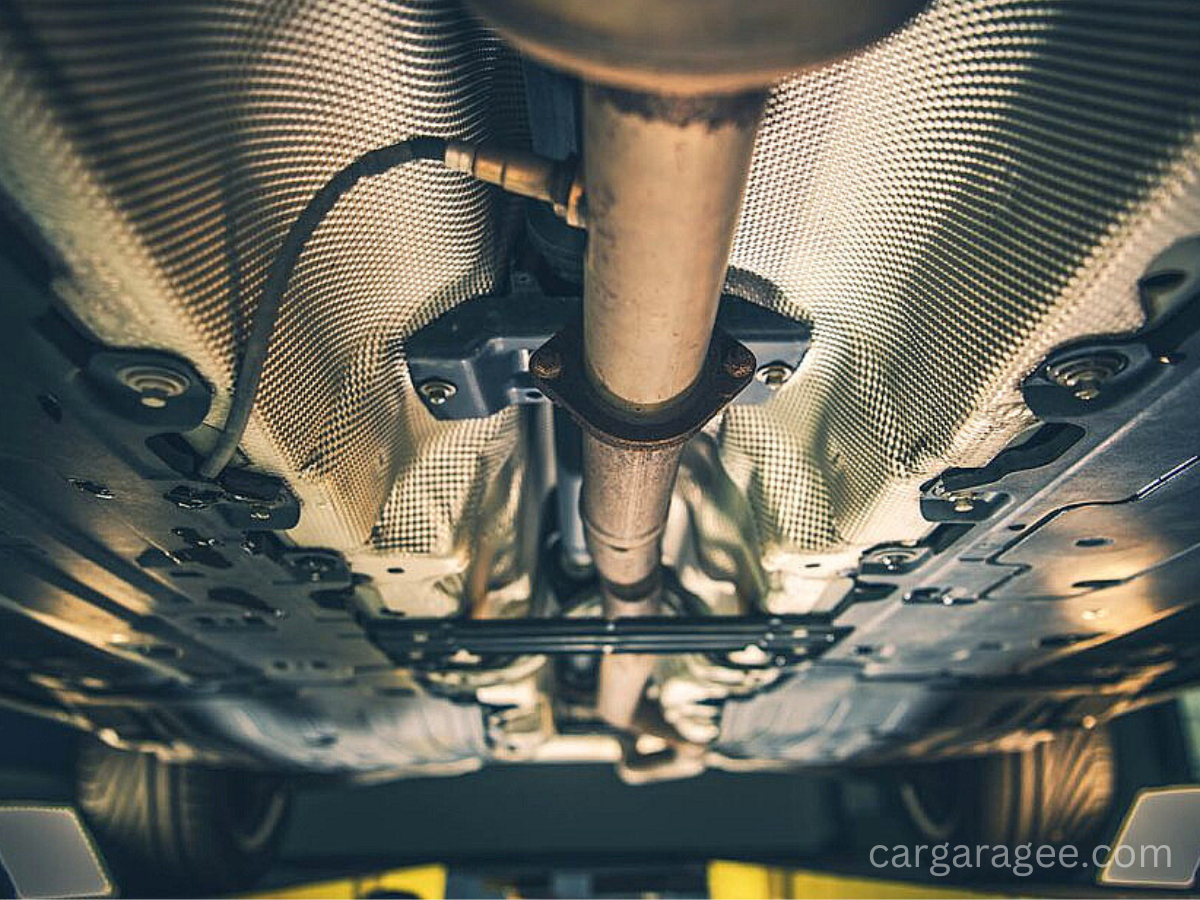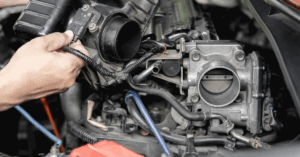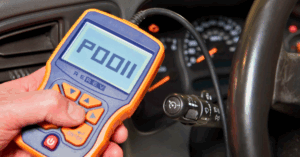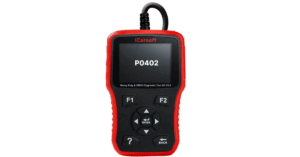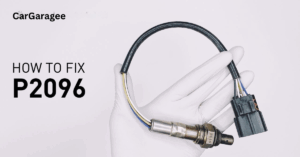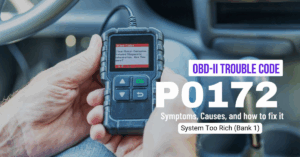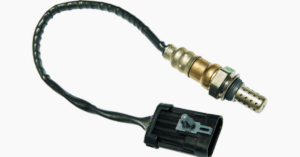Imagine this: you’re on your way to work, and as you accelerate, your car starts to sing a tune, but not the kind you’d enjoy. These unexpected car noise when accelerating, varying from clicks to whines, are more common than you might think and often signal that your vehicle needs a little TLC. Recognizing and addressing these sounds promptly can save you time and money and ensure your safety on the road.
Understanding Car Noises: What They Mean
Clicking and Ticking Noises:
Have you ever heard a soft yet persistent click or tick as you press the gas pedal? This soundtrack often stars the valves and bearings under your hood, playing a rhythm that suggests wear or misalignment. From my years turning wrenches in the garage, I’ve learned these sounds can start quietly, almost like a conversation starter, hinting it’s time for a closer look.
Rattling Sounds Noise When Accelerating:
Rattling is like your car’s saying, “Hey, something’s loose here!” It could be as simple as a bolt that’s decided to dance away from its designated spot or a sign of something more serious, like an exhaust component bidding farewell. I remember tightening a mysterious loose bracket that quelled a rattling chorus in an old sedan in my early days. Such fixes can be straightforward but essential to smooth performance.
Whining or Squealing:
These sounds often point to a serpentine belt seeking attention, possibly due to wear or a loosening grip. Imagine this belt as the conductor of your car’s mechanical orchestra, and when it’s offbeat, the harmony is disrupted. I’ve seen many vehicles where a quick belt replacement or adjustment turned a screech into a purr.
In the next section, we’ll dive deeper into the causes behind these noises and share more about how to address them effectively. Stay tuned for expert advice on keeping your car’s performance smooth and reliable.
Finding the Cause: What’s Making That Noise When Accelerating?
Exhaust System Troubles:
One of the more dramatic members of the noise ensemble comes from the exhaust system. A leak or a hole in the exhaust pipe, muffler, or any other component can turn your car into a roaring beast. During my years as a mechanic, I’ve had cars come into the shop sounding like a concert of lions, only to find a small leak was the cause. Identifying and fixing these issues early can prevent a small concert from turning into a full-blown orchestra.
Engine’s Cry for Attention:
The engine, the heart of your car, has its language of knocks and ticks to communicate. Worn-out pistons, for instance, knock more insistently as you accelerate, like they’re saying, “Help me!” Bearings, on the other hand, prefer a ticking sound to express their weariness. I recall diagnosing a car that made such a racket; it turned out that a single-bearing replacement silenced the noise. This experience taught me the importance of listening closely to what your engine is trying to say.
Serpentine Belt and Pulleys:
The serpentine belt is an important part of your car, and if it’s not working properly, it will definitely let you know. If this belt is loose or old, it can make a loud squealing or whining noise when you speed up. Bad pulleys can also add to this noise. I once changed a damaged pulley and it made a huge difference – the car went from making a loud noise like a screeching bird to running smoothly. Experiences like this show us how everything in our car needs to work together perfectly. This is especially true when it comes to avoiding noise when accelerating.
READ MORE:
Self Service Car Wash: 5 Essential Insights
Honda vs Hyundai: Which is the Better Choice in 2024?
How To Install The Navigation App On A Toyota? A Comprehensive Guide
How to Fix It: Tips from a Pro
Regular Maintenance Tips:
An ounce of prevention is worth a pound of cure, especially concerning car noises. Regular check-ups can catch many issues before they start singing their troubles. I always advise my clients to listen to new sounds and bring their cars in for a check-up at least once a year. It’s a simple step that can save you from more complicated repairs.
DIY Checks and When to Seek Help:
There are a few things every car owner can do to help diagnose noise issues. For starters, pay attention to when the noise occurs. Is it only when accelerating, or is it constant? Also, try to pinpoint where the noise is coming from. However, when in doubt, it’s best to consult a professional. Many well-intentioned DIY repairs go awry, turning minor problems into big ones.
Addressing Common Misconceptions:
It’s important to debunk a common myth: all noises mean big trouble. While some noises can indicate major issues, others might be simple fixes. Don’t let fear of a hefty repair bill stop you from getting your car checked. Occasionally, catching something early leads to a more straightforward, affordable solution.
Personal Experiences
The Singing Belt and the Hidden Pebble
A car came in, making a high-pitched noise when accelerating every time. The problem? Not the belt, but a tiny rock stuck in a significant spot. This story shows how looking closely can uncover the most unexpected solutions.
The Mystery of the Vanishing Rattle
A customer kept hearing a strange noise, but only sometimes. It took patience and a bit of detective work to find out it was just a part of the car that wasn’t tight enough, only making noise under certain conditions. This tale teaches us the importance of listening to what the vehicle and its owner tell us.
Conclusion
Ignoring your car’s various noise when accelerating is like ignoring a cry for help. These noises are your vehicle’s way of communicating potential issues, ranging from minor to severe. By adopting a proactive approach to car maintenance and paying close attention to your vehicle’s “voice,” you can ensure a smoother, safer driving experience. Remember, your car takes care of you — it’s only fair you return the favour.
FAQS
Why does my car make a noise when accelerating?
This noise could be your car’s way of saying, “Check my engine belt!” It might be loose or worn out or a pulley failing. If it’s more of a rumble, your exhaust system might be the culprit, suggesting something might be leaking or damaged there.
Why does my car make a grinding sound when accelerating?
Grinding sounds in an automatic car during acceleration often point to the transmission. It could mean the gears are wearing down, which is natural over time but could worsen with low transmission fluid. First, check your transmission fluid level to ensure it’s high enough.
Why is my car making a loud noise when I press the gas?
Several reasons can cause a loud noise when accelerating . Check your exhaust pipes, muffler, and catalytic converter for any visible damage or leaks. Also, inspect the air intake system; a dirty or clogged air intake can lead to noise when accelerating. Make sure the air filter is clean and clear.
How do you fix the rattling noise when accelerating?
A rattling noise when speeding up could mean your Automatic Transmission (A/T) is low on fluid. First, check the fluid level under the hood. If it’s low, fill it up to the recommended level. After refilling, take your car for a short drive to see if the rattling has stopped.
Will a bad CV joint make a grinding noise?
Yes, a bad CV (Constant Velocity) joint can make a grinding noise. You can check this by lifting the front of the car and removing the wheels to get a better look at the CV joints. A rubber boot covers them; if this boot is torn, it’s a sign that the CV joint is bad or will be soon, as dirt inside will wear it down quickly.

Mian Hashir is a passionate automotive enthusiast and the lead author at Car Garagee, a website dedicated to providing in-depth car reviews, maintenance tips, and the latest news in the automotive world. With years of experience in the industry, Hashir combines his technical knowledge with a love for cars to deliver insightful and engaging content. Whether you’re a car owner or a curious reader, Mian Hashir’s articles help readers make informed decisions, from choosing the right vehicle to understanding how to keep it in top condition.
